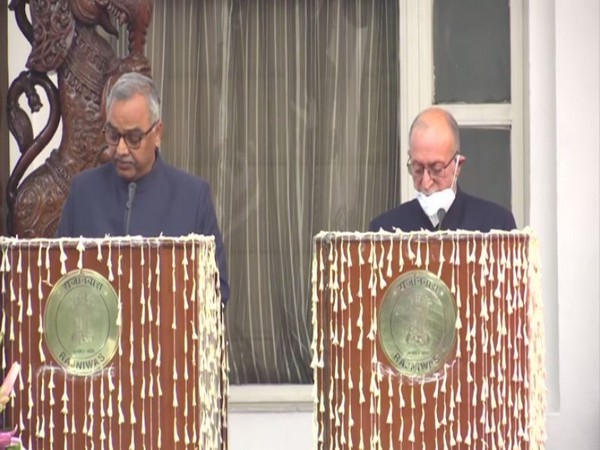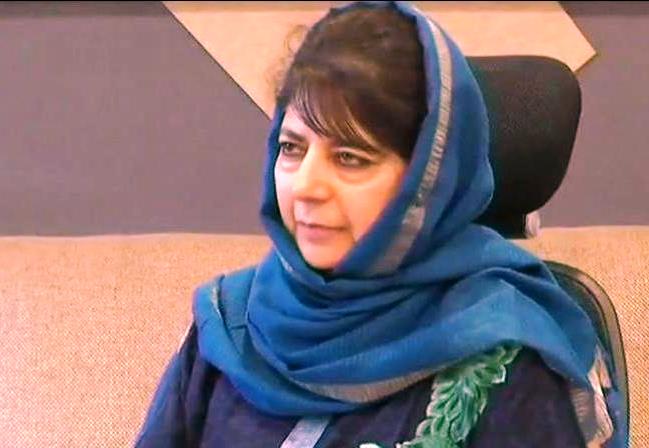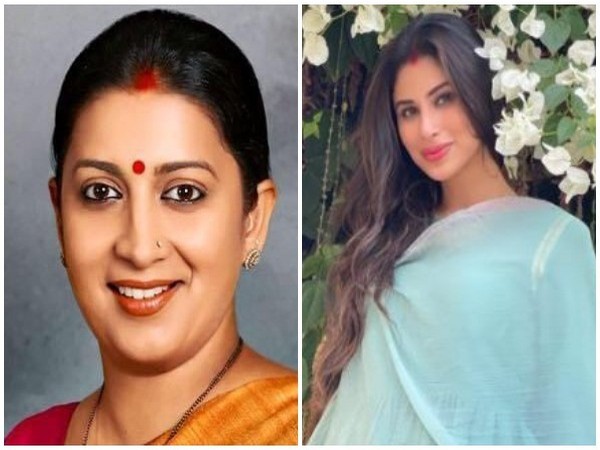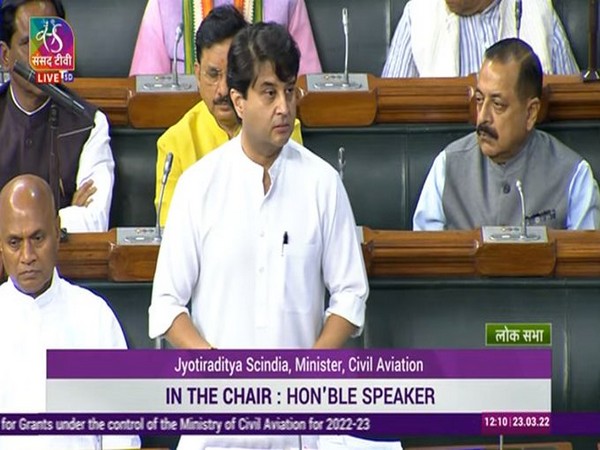A drowning man will catch a straw, as the proverb goes. It is otherwise difficult to explain Prime Minister of Pakistan Imran Khan praising India for its independent foreign policy when on Friday, March 25, 2022, he will have to face a crucial no-confidence motion in the National Assembly of Pakistan where his ouster seems all but certain.
Imran Khan was referring to the Indian decision to buy oil from Russia despite the sanction and despite India being a member of the Quadrilateral Alliance. “Their policy is for the betterment of people,” he said while addressing a public rally at Khyber Pakhtunkhwa on March 20. He seems to have realized his own folly of trying to preside over the government of a failed state.
With Imran Khan’s own party Pakistan Tehreek-e-Insaaf having only 155 seats in the 342-member National Assembly, and support from six coalition partners who between them have 23 seats being uncertain, it is difficult to see how the former cricket captain of Pakistan will survive as the Prime Minister.
Nearly 100 legislators from Pakistan Muslim League-Nawaz and Pakistan Peoples’ Party have submitted the no-confidence motion. They need the support of 172 members in the National Assembly to remove Imran Khan from power. Cracks have surfaced among Imran Khan’s own Pakistan Tehreek-e-Insaaf. A key partner of the coalition Pakistan Muslim League-Quaid is opposed to Imran Khan as Prime Minister.
The possible ouster of Imran Khan would once again establish that democracy cannot survive in Pakistan, a country where the army and its powerful wing the Inter-Service Intelligence control everything. Imran Khan has committed the cardinal sin of offending the army. In Pakistan, the support of the politically powerful military is critical for any political party to retain power. He has used the ISI to stay in power, and now the same ISI is trying to remove him from power.
Imran Khan had stood in the way of what was being seen as a routine transfer in the army, with Pak army chief General Qamar Javed Bajwa planning to shift Director General of ISI Lt Gen Faiz Hamid as the commander of Peshawar-based XI Corps and replacing him with Lt Gen Nadeem Anjum as the DG ISI. The Prime Minister had refused to issue the formal notification.
The fact, possibly, is that Imran Khan himself had become too dependent on Lt Gen Faiz Hamid and was using the ISI for his political survival. Finally, Imran Khan had to eat the humble pie in October 2021 and accept the face-saver of choosing the same Lt Gen Nadeem Anjum as the DG ISI from a panel of three names presented to him by Gen Bajwa. It is reported that Imran Khan had been warned against any attempt by him to replace the army chief.
While domestic issues like rapid inflation have been highlighted by opposition parties in seeking Imran Khan’s ouster, the former cricket captain of Pakistan must also share a part of the blame himself for having made a mess of the foreign relations of Pakistan.
This, too, has not gone down well with the army which has a major say in the foreign relations of the country.
Imran’s own obsession with the Kashmir issue has antagonized a powerful section of the Islamic world. He has embraced China with open arms, and in the process has antagonized the USA. To humour China, he has refused to condemn the persecution of fellow Muslims in Xinjiang; but even then, he has failed to win the full support of the Chinese either.
The politically powerful army chief of Pakistan, Gen Bajwa, seems to have decided to strike against Imran Khan for having interfered in the traditional domain of the army.
Gen Bajwa has chosen his moment when Pakistan is hosting a meeting of the Organization of Islamic Cooperation (OIC) in Islamabad on March 22 and 23.
In a meeting of the OIC in Niger in November 2021, OIC sent a message to the Imran Khan government by refusing to discuss Kashmir as a separate item. Ever since the abrogation of article 370, the Imran Khan government has been asking for a special session of OIC on Kashmir, but this has not found favour from countries like Saudi Arabia.
Under the Imran Khan regime, Pakistan’s relations with the Arab world are believed to be at a historic low; particularly after the Prime Minister of Pakistan had refused to criticize the genocide on Muslims of the Xinxiang province committed by China; instead been trying to project Turkish President Recep Tayyip Erdogan as the leader of OIC for the support that the latter has extended on Kashmir; calling it still a burning issue in the United Nations General Assembly.
In fact, except for China, Malaysia and Turkey, no other country has supported Islamabad on Kashmir. A professor of International Relations at John Hopkins University has been quoted in the German broadcasting agency DW that Saudi Arabia is unlikely to take measures against India over New Delhi’s Kashmir policy. It sees India as an important trading partner and is unlikely to support Pakistan on the Kashmir issue.
Ironically, though Imran Khan has let down his Muslim brethren in Xinjiang for the sake of humouring China, Beijing has refused to toe Imran Khan’s line on Kashmir. In the joint statement between Pakistan and China released after Imran Khan’s visit to Beijing during the Winter Olympics, the Chinese stand on Kashmir was no different from what it had said in the past, that it was a dispute left over from history and should be peacefully resolved based on bilateral talks. Significantly, China opposed any unilateral action to resolve the Kashmir issue.
The kowtowing of the Imran Khan government to Beijing seems to reflect the reality that since the introduction of Belt and Road Initiative projects in Pakistan, particularly the China Pakistan Economic Corridor, Pakistan has turned into a quasi-colony of China.
Unfortunately, however, despite the overtures of the Pakistan government, Beijing seems to be offering a cold shoulder to Islamabad. When Imran Khan went to Beijing in February 2022 for the Winter Olympics, Pakistan had wanted to convert it into a state visit by Imran Khan with an entourage of a dozen ministers. Beijing, however, asked Islamabad to cut the size of the entourage to about four ministers. President of China Xi Jinping agreed to grant Imran Khan an audience only after a lot of entreaties, and that too a brief one.
It is learnt that China has lately conveyed to Pakistan the displeasure of the former over the deteriorating law and order situation in Pakistan and the slow pace of CPEC projects. Analysts say China does not consider the prevailing security, financial and political situation in Pakistan conducive for more investment; nor is it willing to humour Islamabad with more loans at concessional rates of interest. Baloch separatists are targeting CPEC and the commercial interests of China. There have been protests also by the common people of Pakistan against measures like forcible land acquisition in CPEC project sites.
It is lack of foresight that the Imran Khan government in its anxiety to please the Chinese has antagonized the USA, the traditional friend of Pakistan. At the behest of China, Pakistan stayed away from the Summit for Democracy that US President Joe Biden convened in December 2021. China, incidentally, was not invited to the summit.
The message that the Biden administration learnt was clear, Pakistan had chosen a side; China’s side.
President Biden has not yet made a single phone-call to Prime Minister Imran Khan, which has not gone down too well with Islamabad.
On top of it has come the assertion of Imran Khan in a media interview that would not allow the US to use Pakistan as a base for its operations against Al Qaeda and other Islamic fundamentalist groups. This may not have gone down well with influential sections of the military and civil establishment in Pakistan with their preference for the USA.
Imran Khan has annoyed friends of Pakistan in the European Union, too, by being present in Moscow hours after the beginning of the crisis in Ukraine, even calling the moment “exciting times.” For this, however, Pakistan is unlikely to enjoy the patronage of Russia. During the Winter Olympics in Beijing, Imran Khan had sought a meeting with Vladimir Putin, but in vain. (ANI)











